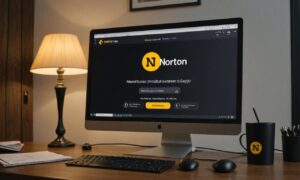Many employees trust their 401k plans for retirement savings, but hidden beneath the surface lurk potential scams, fraud, and risks that could derail your financial future. In this eye-opening article, we’ll expose the truth about 401k plans and arm you with the knowledge to protect your hard-earned money.
In my 15 years as a financial advisor, I’ve seen countless clients fall victim to 401k scams and hidden fees. It’s crucial to stay informed and vigilant to safeguard your retirement savings. – Jaxon Quigley, CFP
Common 401k Scams: Employer Match Deception, Tax-Deferral Trickery, and Embezzlement
Beware of these all-too-common 401k scams that could leave you with an empty nest egg:
- Employer match scam: Some unscrupulous employers promise a generous match but never follow through, leaving you short-changed.
- Tax-deferral scam: While tax-deferred growth is a 401k benefit, some plans charge exorbitant fees that negate any tax advantages.
- Missing contributions and embezzlement: In rare cases, employers may fail to deposit your contributions or even embezzle funds from your account.
To protect yourself, closely monitor your 401k statements, question any discrepancies, and report suspicious activity to your plan administrator or the Department of Labor.
The Hidden Cost of 401k Plans: Expense Ratios and Fees
High expense ratios and hidden fees can silently erode your 401k returns over time. According to a study by the Center for American Progress, the average worker pays 1% in annual 401k fees, which can add up to nearly $140,000 in lost savings over a lifetime.
To minimize fees:
- Opt for low-cost index funds over actively managed funds
- Review your plan’s fee disclosure statement annually
- Consider transferring funds to an IRA with lower fees if you change jobs
Remember, every dollar saved on fees means more money working for your future.
Safeguarding Your 401k from Hackers and Phishing Scams
In the digital age, your 401k is a prime target for hackers and phishing scams. Cybercriminals may attempt to steal your login credentials, personal information, or even drain your account through fraudulent transactions.
To keep your 401k secure:
- Use strong, unique passwords and enable two-factor authentication
- Be wary of unsolicited emails or calls claiming to be from your 401k provider
- Regularly review your account for suspicious activity
- Report any suspected phishing attempts to your plan administrator
I once had a client who lost $50,000 from his 401k after falling for a phishing scam. It’s crucial to stay vigilant and report any suspicious emails to [email protected] or your plan’s designated security contact. – Jaxon Quigley, CFP
Steering Clear of 401k Investment Traps
Not all 401k investment options are created equal. Some plans offer limited, high-cost funds that can hamper your returns. Others may push risky, complex products like target-date funds or stable value funds that might not align with your goals.
To make smart 401k investment choices:
- Diversify your portfolio across asset classes and sectors
- Opt for low-cost index funds when possible
- Regularly rebalance your investments to maintain your desired risk level
- Consult with a financial advisor to develop a personalized strategy
By taking an active role in your 401k investments, you can maximize your returns and avoid costly traps.
Red Flags: Signs of 401k Scams and Fraud
Knowing the warning signs of 401k scams and fraud can help you spot trouble before it’s too late. Be on the lookout for:
- Cold calls or unsolicited offers to review your 401k or transfer funds
- Pressure to make immediate investment decisions or provide personal information
- Promises of guaranteed returns or unrealistic investment projections
- Unexplained delays in depositing your contributions or processing withdrawals
If something seems too good to be true or just doesn’t feel right, trust your instincts and seek guidance from a trusted financial professional.
Exploring Alternatives: Beyond the 401k
While 401k plans can be valuable retirement savings tools, they’re not the only option. Depending on your situation, you might consider:
- Traditional or Roth IRAs: Offer more investment choices and potentially lower fees
- Health Savings Accounts (HSAs): Provide triple tax advantages for qualifying medical expenses
- Taxable brokerage accounts: Allow for greater flexibility and liquidity
- Real estate or business investments: Can offer diversification and potential passive income streams
| Retirement Account | Key Benefits | Potential Drawbacks |
|---|---|---|
| Traditional IRA | Tax-deferred growth, wide investment options | Income limits, required minimum distributions (RMDs) |
| Roth IRA | Tax-free growth and withdrawals, no RMDs | Income limits, no upfront tax deduction |
| Health Savings Account (HSA) | Triple tax advantages, portable between jobs | Requires high-deductible health plan, fees vary |
Ultimately, the key is to diversify your retirement savings and not rely solely on your 401k. By spreading your investments across multiple vehicles, you can minimize risk and maximize your chances of a secure financial future.
Discovering the truth about my 401k’s hidden fees and limited investment options was a wake-up call. I’ve since diversified my retirement savings across IRAs, HSAs, and real estate investments to create a more robust portfolio. While a 401k can still play a role, it’s important to explore all your options and make informed decisions to protect your financial well-being.
See also:
- Is Kroll Monitoring a Scam or Legitimate? The Truth About Kroll’s Credit Monitoring Service
- Beware of Coinbase Scams: How to Protect Your Crypto and Avoid Phishing Attacks
- Is Prize Picks Legit? An In-Depth Review of the Daily Fantasy Sports Platform
- Beware of Norton Email Scams: Protect Your Money and Personal Information
- Is Shein a Scam? Uncovering the Truth Behind the Popular Online Retailer






